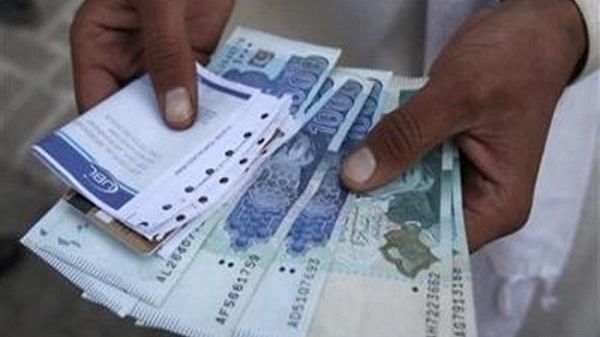New Delhi: The International Monetary Fund has reportedly asked Pakistan to renegotiate the energy deals with China under which the former is supposed to pay more than Rs 300 billion Pakistani rupees to several Chinese firms operating in the country.
Debt-ridden Pakistan and the IMF are engaged in tough talks in Doha for grant of the remaining $3 billion from an existing loan programme.
This demand comes after Beijing’s refusal to renegotiate the terms of agreements for projects under China-Pakistan Economic Corridor (CPEC), reported The Express Tribune. According to the report, the IMF suspected that the Chinese IPPs might have been overcharging Pakistan, hence pushing for a need to reopen these deals.
There are more than 30 Chinese companies operating under the CPEC in several infrastructural projects in various fields like energy, communication, railways, roads and highways to facilitate trade connectivity.
At the virtual talks held Wednesday, the IMF had expressed concern over Pakistan’s outstanding repayments to Chinese IPPs, The News reported. This came after Pakistan Prime Minister Shehbaz Sharif Monday approved the immediate release of PKR 50 billion to Chinese IPPs as the first installment for the total outstanding dues of PKR Rs 340 billion to ensure fuel supplies.
The IMF reportedly asked about the repayment schedule on this account.
Also read: How Pakistan economy was in fast lane for 30 yrs but its engine kept overheating with debt
IMF, Pakistan and CPEC
It was due to the IMF’s objections that the Pakistani government did not directly pay the Chinese IPPs last week and instead released PKR 50 billion for the power division under the general subsidy claims for July. The power division then made the payment to the Chinese IPPs and some others to address their “liquidity crunch”, which led the IMF to ask Pakistan to provide the list of power plants that received the amount.
The global lender’s actions puts Pakistan in a tight spot in addressing Chinese concerns over the slowdown of CPEC projects in the past four years. China has been trying to put the multibillion-dollar initiative back on track.
In Pakistan, 11 Chinese IPPs have invested $10.2 billion to generate 5,320 megawatts, but nearly 2,000MW of power plants were shut last month due to shortage of coal. Moreover, power plants threatened to stop the operations if the dues of PKR 340 billion were not immediately cleared. This led PM Sharif to convene a meeting with the CEOs of Chinese firms working on CPEC projects.
The Chinese representatives complained in the meeting that the work remained almost halted on CPEC projects. The PM then issued various orders on the spot for resolving the issues saying that Pakistan was looking toward China for support in every walk of life in a bid to ensure sustainable development, The News reported.
The IMF has lent money to Pakistan 22 times during the last 60 years and they all come with some conditions — the most stringent being accounting the details of Chinese financial outlay in the CPEC and giving firm assurances that Pakistan will not divert IMF loans to service its Chinese debts.
Meanwhile, the IMF’s resident chief Esther Perez Ruiz had called the ongoing discussions on the pending seventh review with the Pakistani authorities “constructive” even as Islamabad is making its last-ditch efforts to reconcile with the global lender.
Columnist Javed Hassan criticised the IMF. “One finds it impossible to accept that @IMFNews /@imf_pakistan would demand from Pakistan that it renegotiate CPEC contracts. While one may believe that the Fund would want to be privy to all CPEC related liabilities, one imagines it’s not in it mandate to dictate such demands,” Hassan tweeted.
Political science professor Adnan Rasool called this a non-starter, saying that CPEC agreements as part of Belt and Road Initiative fall under the judicial system of China with special courts.
This is a non starter. Because CPEC agreements as part of BRI fall under the judicial system of China with special courts.
I explained some of this in my recent paper. https://t.co/JcDbSxFqG4#Pakistan better have a solid strategy for thishttps://t.co/TOqINe8TeZ— Adnan Rasool (@adnanrasool) June 9, 2022
(Edited by Prashant)



